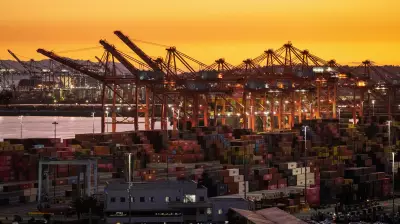
In a dramatic move that could reshape e-commerce regulation across Europe, France is spearheading a charge against Chinese fast-fashion behemoth Shein. French authorities are formally urging the European Union to launch an extensive investigation into the retail giant after multiple discoveries of illegal and deeply concerning products on their platform.
Shocking Findings Prompt Government Action
The call for intervention comes after France's own consumer watchdog, the DGCCRF, uncovered disturbing items being sold through Shein's online marketplace. Among the most alarming discoveries were child-like sex dolls, which represent a serious violation of European consumer protection standards and ethical boundaries.
But the problematic products don't stop there. Investigators found numerous items that pose direct safety risks to consumers, including:
- Hazardous children's jewelry containing dangerous levels of toxic chemicals
- Electronics that fail to meet basic European safety standards
- Various consumer goods with inadequate or misleading safety labeling
Systemic Problems in Fast-Fashion Supply Chains
This isn't the first time Shein has faced scrutiny over its business practices. The company, which has exploded in popularity among budget-conscious shoppers, has repeatedly faced allegations regarding labor practices, environmental impact, and now product safety.
What makes this case particularly significant is the scale of the potential violations. With Shein's massive European customer base, the French government argues that a coordinated EU-wide response is necessary rather than individual country actions.
Broader Implications for E-Commerce Regulation
The French initiative represents a growing concern among European regulators about the challenges of policing global e-commerce platforms. As online marketplaces connect consumers with products from around the world, ensuring compliance with local safety standards becomes increasingly complex.
If the EU heeds France's call, it could lead to:
- Tighter scrutiny of imported consumer goods
- Stronger enforcement mechanisms for online marketplaces
- Heavier penalties for companies that repeatedly violate safety standards
- Enhanced cooperation between member states on consumer protection
The outcome of this potential investigation could set important precedents for how European authorities regulate international e-commerce giants operating within their borders.






